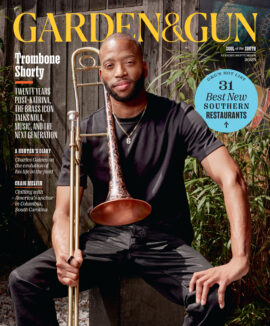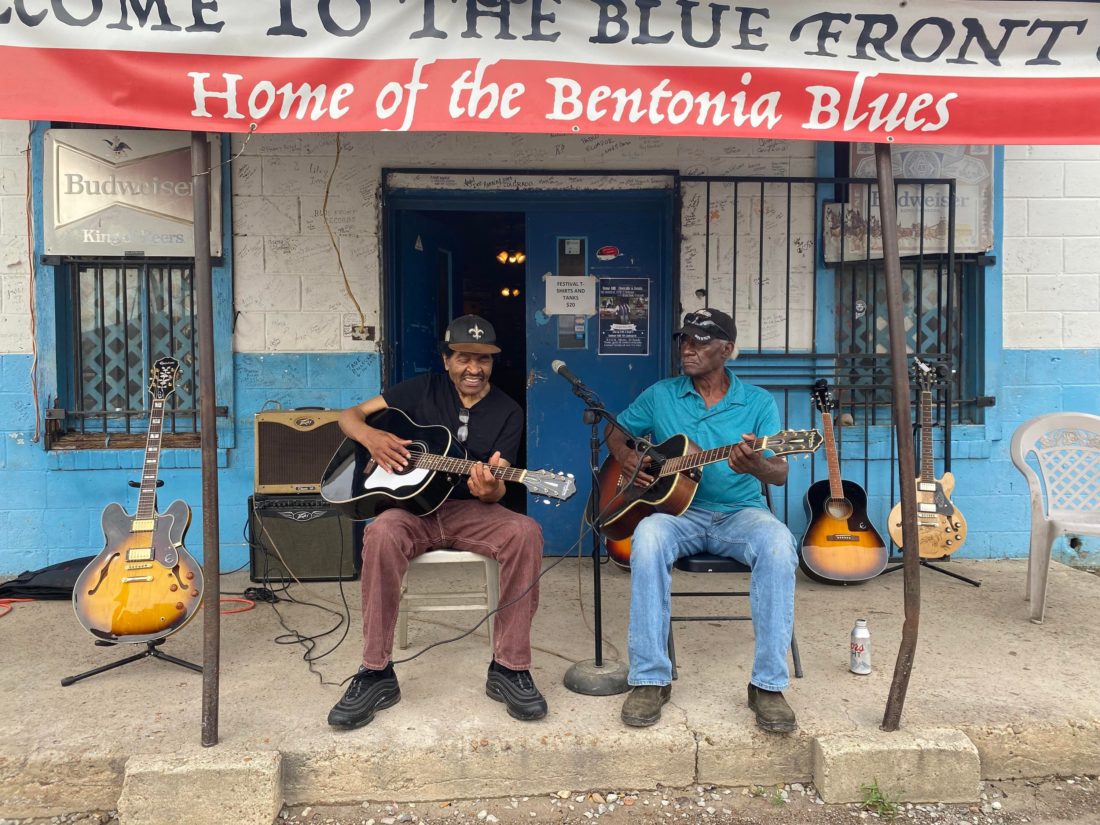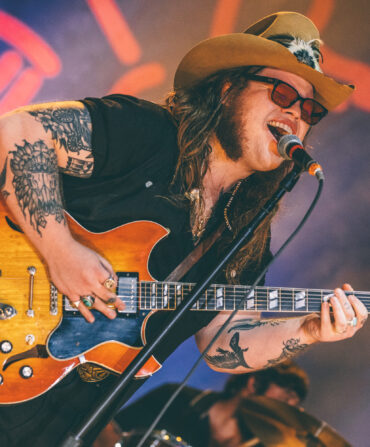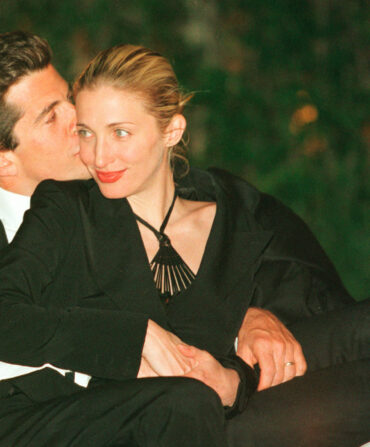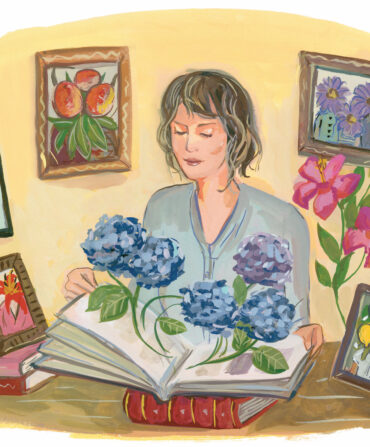Seventy-four-year-old Jimmy “Duck” Holmes, the last of the Bentonia, Mississippi, bluesmen and proprietor of the Blue Front Café, pauses while hammers thwack and a whining circular saw bites into two-by-six pine planks.
Seated at a picnic table under the wooden awning of the oldest known continuously operating juke joint in the country, where bluesman Skip James used to play for tips, Holmes uses the cover of noise to dig into a pile of long-simmered butter beans. “Two things that never fail,” he begins between bites. “It’s gonna be hot”—an easy prediction, as the sun chases the mercury north of ninety degrees—“and plenty of blues music. Never fails.”
Holmes’ pitch for the fiftieth edition of the Bentonia Blues Festival, which he’ll host June 16–18 here in the tiny central Mississippi community of the same name, is at turns tongue-in-cheek, reliably humble, and completely literal. After five decades, he knows what to expect. That’s why, with 87-year-old chitlin’ circuit legend Bobby Rush on the bill, he’s building an outdoor stage.
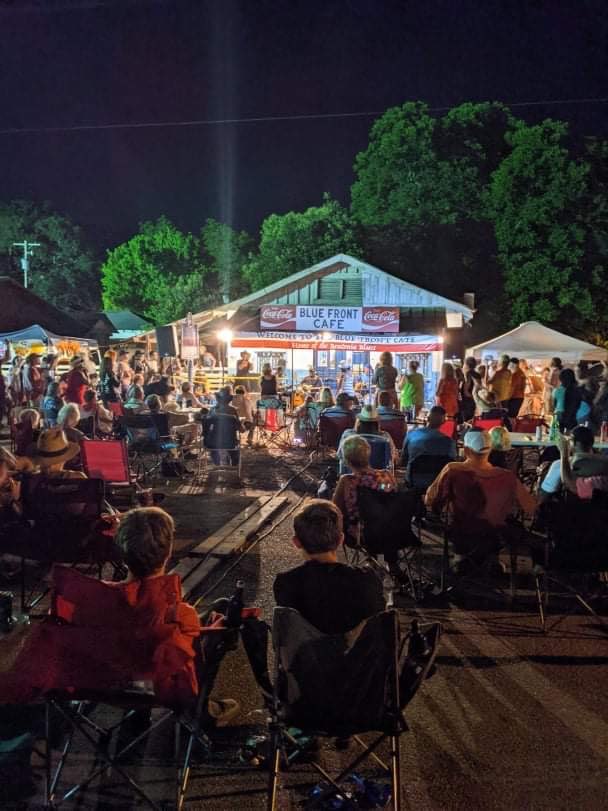
“Last time Bobby was here, it was shoulder to shoulder all the way up here,” he says, motioning to the roughly one-acre patch of land between the Blue Front and the railroad tracks. “Probably gonna be the same way this time.”
The longtime friends and recent Grammy Award competitors—Holmes, in his first nomination, lost to Rush in 2021 for Best Traditional Blues Album—are the marquee attractions at this year’s festival, with a strong undercard showcasing R.L. Boyce, Terry “Harmonica” Bean, Little Willie Farmer, and other artists from Mississippi and beyond. Ahead of the opening set, Holmes spoke with Garden & Gun about what makes Bentonia blues—and the festival it has inspired—so special.
What makes Bentonia blues different from other variations of the blues?
“The people that really know music [say] it’s the haunting sound of the way the guitar’s tuned. Whenever someone asks me, that’s all I can tell them.”
How has the Bentonia Blues Festival been able to thrive for so long?
“It speaks for itself and it’s been a success since day one. It started out as a festival more or less geared toward a community gathering, and it grew into what we have today. When we first got started, we only had a DJ playing blues music. And the next year, 1973, is when we started having live music. Matter of fact, the very first live act we had, they’re gonna do a presentation for him at this year’s festival. He’s played each year since. His name is Roosevelt [Roberts, Jr].”
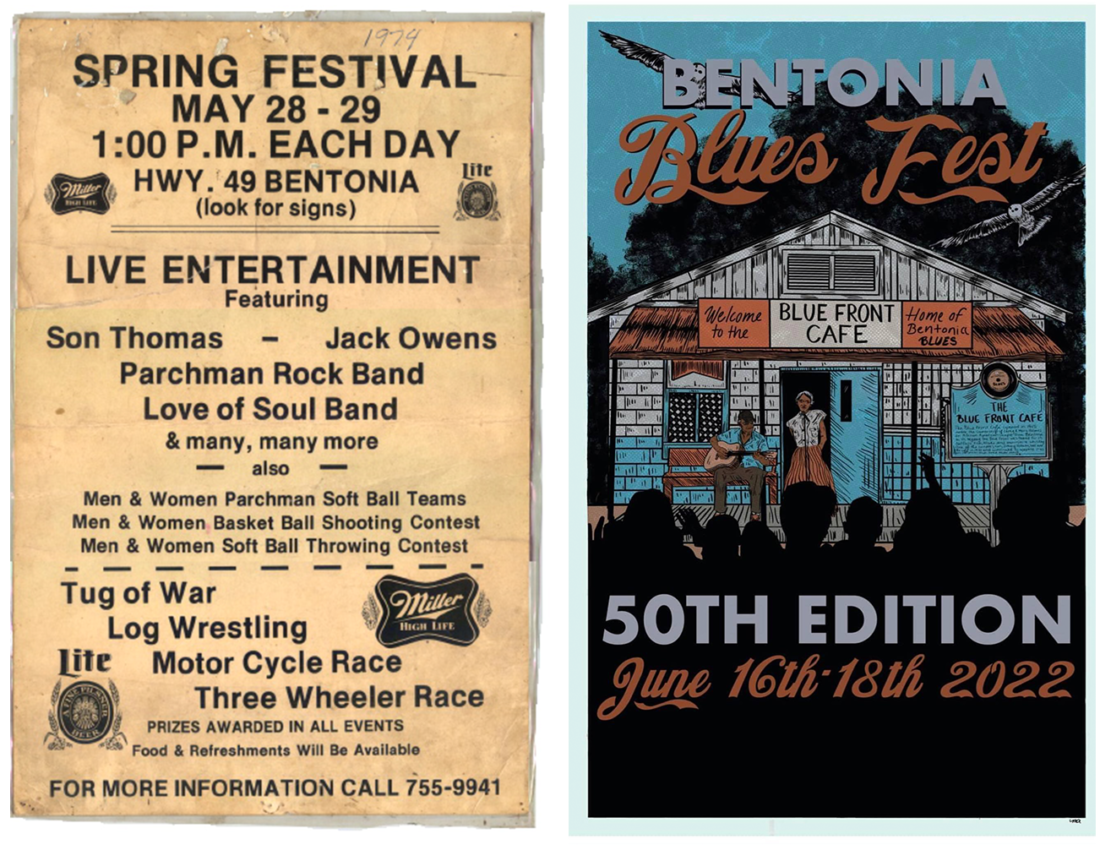
Has the festival always been free to attend?
[Nods] “When me and my mom first started, we gave away all the food and beverages. It was a blessing from God we were able to do it. Ever since then, I get some donations, I might get some sponsorships; I don’t depend on that. I depend on the doors of the Blue Front staying open. As long as the Blue Front survives, the festival’s gonna survive.”
One of the big draws this year is Bobby Rush. How far back do you two go?
“We go back a long ways, [to] hanging out on a street corner in Jackson. He canceled an engagement to come help me celebrate the fiftieth anniversary and he told the people when it came to him helping do the festival, money couldn’t change that. Last time we talked, he said he didn’t realize what he meant to the blues world until he was sixty-something years old. But he was important way before that. Now they won’t let him rest.”
Did the popularity of the festival grow organically over the years?
“Yeah. At one time, juke joints and blues got a bad rap. They always considered juke joints rough places, and some people think that way today because they’re stereotyping. Blues is evil music—that’s the stereotype. Let me tell you something, all blues does is tell a story with a guitar, a piano, maybe a harmonica. Maybe the guy went out, got drunk on the weekend. Get up on Sunday morning and go to church and testify to that with no music, they’re gonna pray for you. Some of ‘em probably gonna cry. Put a guitar to it, or a piano, or a harmonica, and all of a sudden it becomes evil. I ain’t figured that one out.”

